AI Overviews are AI-generated content, which means they can contain hallucinations.
Google uses “grounding” to improve their accuracy, but according to our research, AI Overviews are more likely to cite AI-generated content than human-written content.
Here’s what we found:
We ran each URL through our own AI content detector, which is part of Page Inspect in Site Explorer.
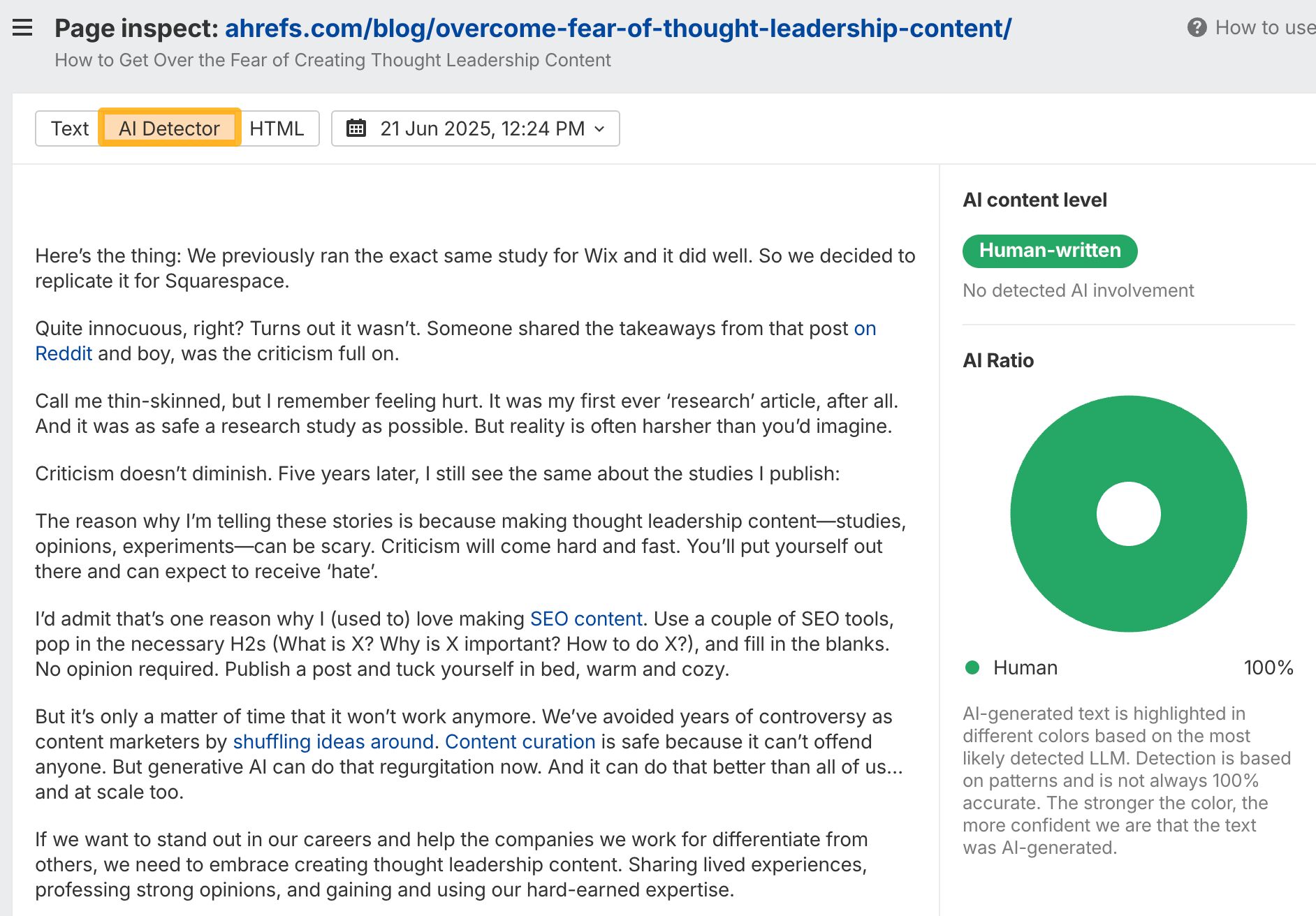
Here’s what our content detector found:
- 3.6% of pages cited in AI Overviews were categorized as “pure AI.”
- 8.6% were categorized as “pure human.”
- 87.8% were categorized as a mix of two.
Of the ones that were a mix of both human and AI:
- 11.2% showed minimal AI use (1-10% of the page content was categorized as AI)
- 44% showed moderate AI use (11-40%)
- 24.7% showed substantial AI use (41%-70%)
- 7.9% showed dominant AI use (71%-99%)
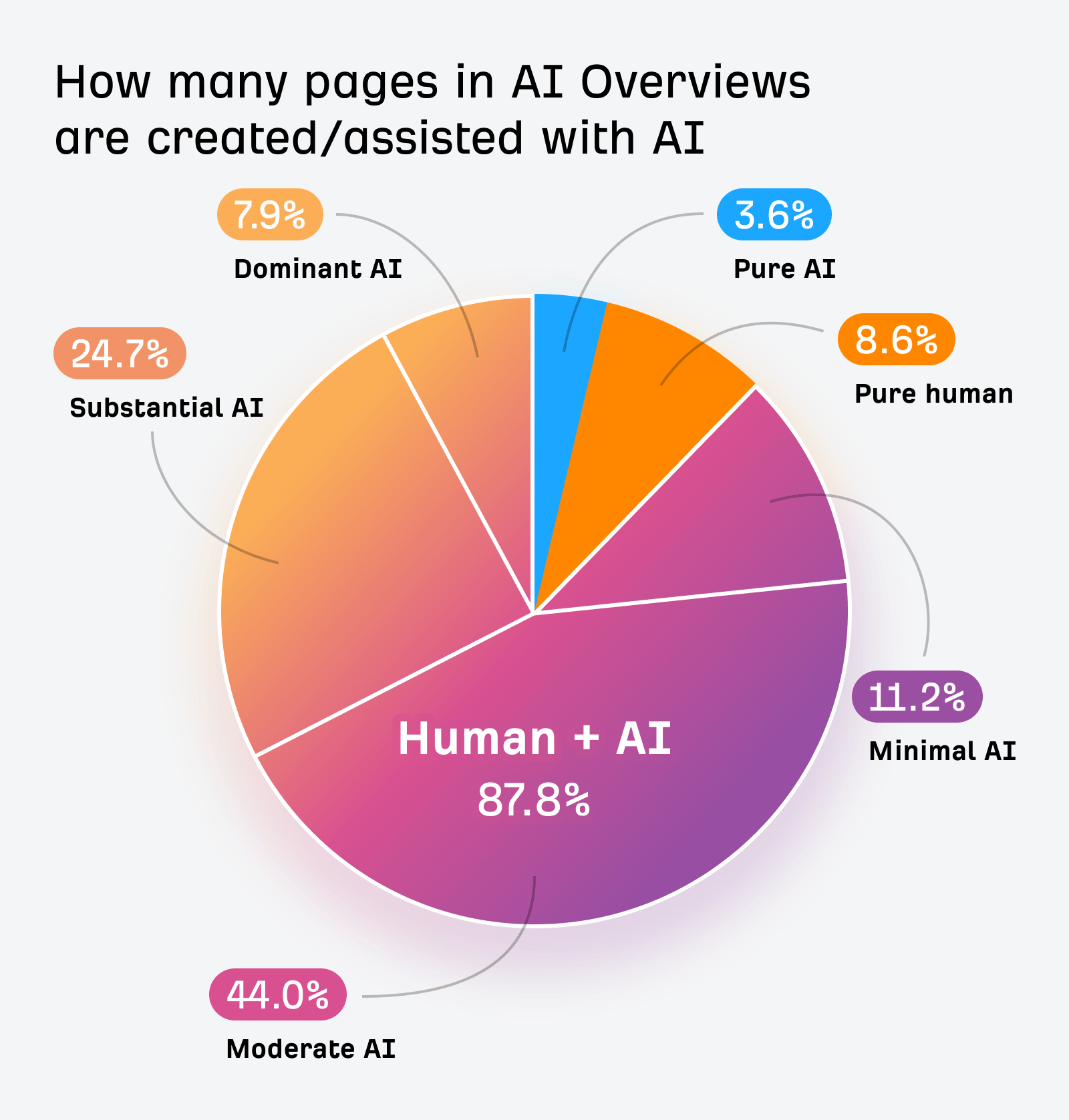
These findings become even more striking when compared to our previous research on AI content across the web. In our analysis of 900,000 new pages, we found that:
- 2.5% of pages were categorized as “pure AI.”
- 25.8% were categorized as “pure human.”
- 71.7% were categorized as a mix of the two.
Even though this research looked only at new pages (and not all cited URLs in AI Overviews will be new), this suggests that Google’s AI Overviews might show a bias toward citing AI-generated or AI-assisted content compared to the general distribution of content on the web.
Sidenote.
No AI content detector is perfect. Like LLMs, AI detectors are statistical models. They deal in probabilities, not certainty. They can be incredibly accurate, but they always carry the risk of false positives. You can learn more about how AI detectors work, and why they’re useful, in these articles:
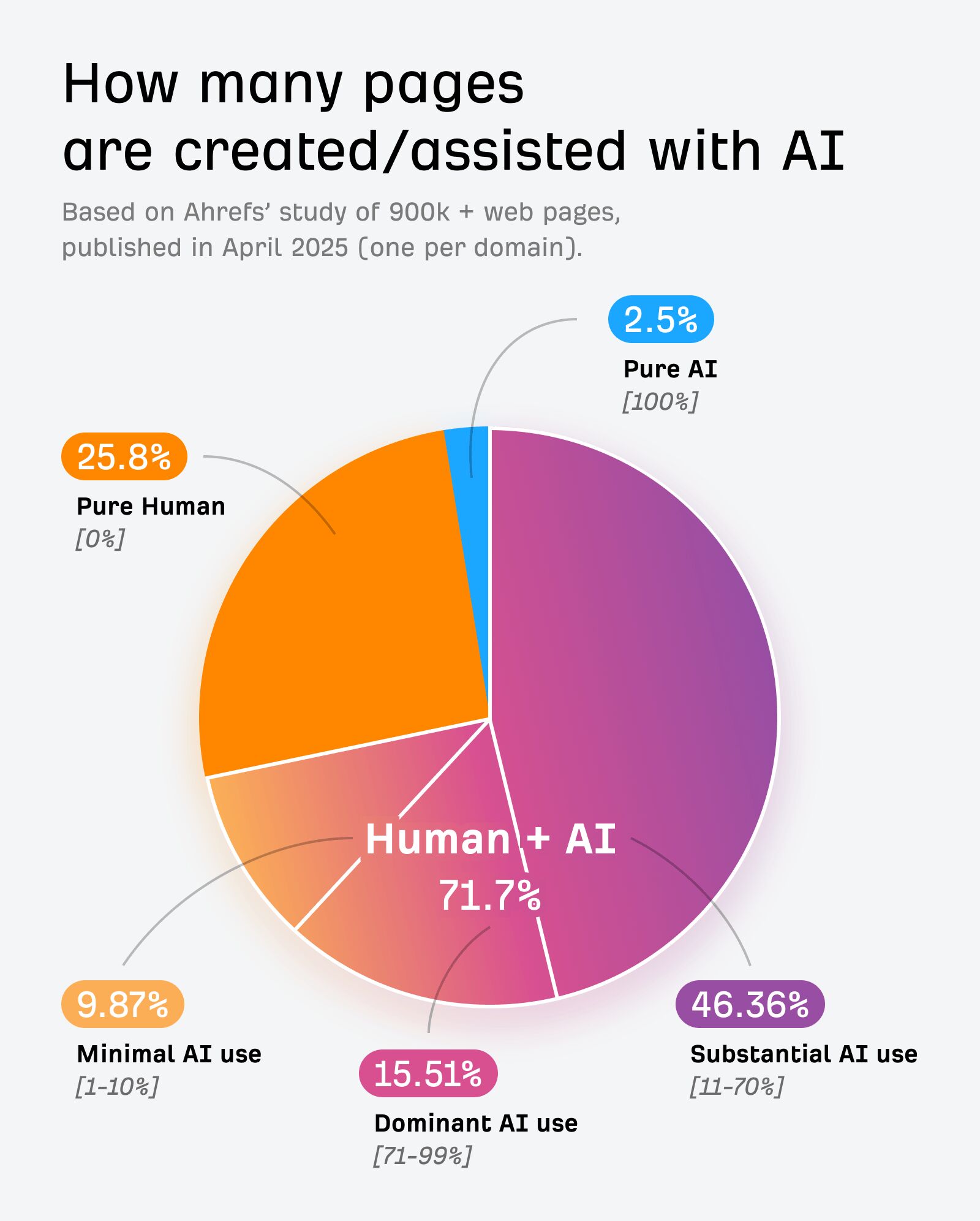
Google depends on creators for content. But creators are increasingly using AI to create or assist with content creation. For example, in our State of AI in Content Marketing report, where we surveyed 879 marketers, 87% of respondents use AI to help create content.
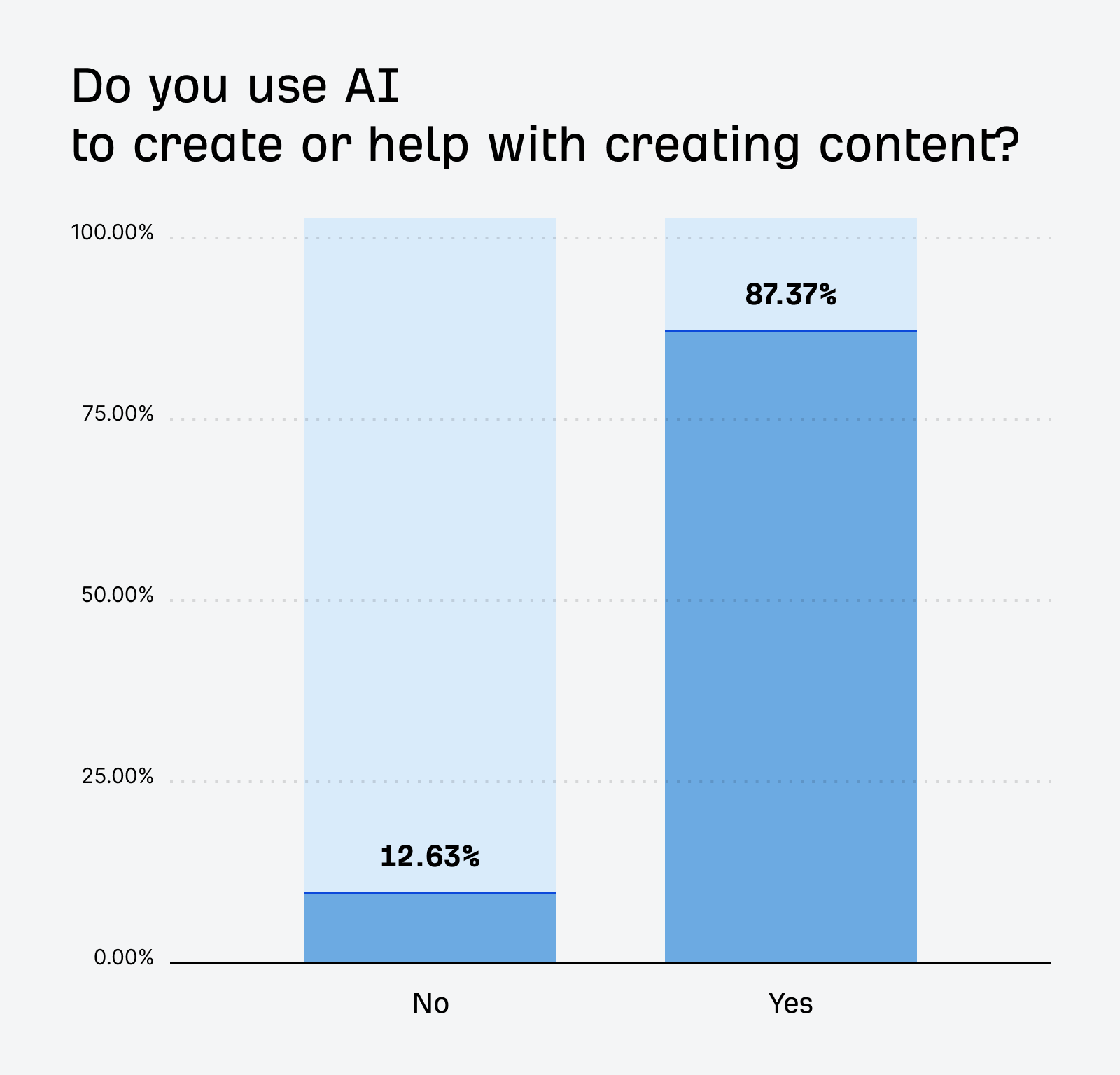
And even though Google’s trying to improve accuracy through retrieval-augmented generation (RAG), we’ve also found that 86.5% of top-ranking pages contain some amount of AI-generated content.
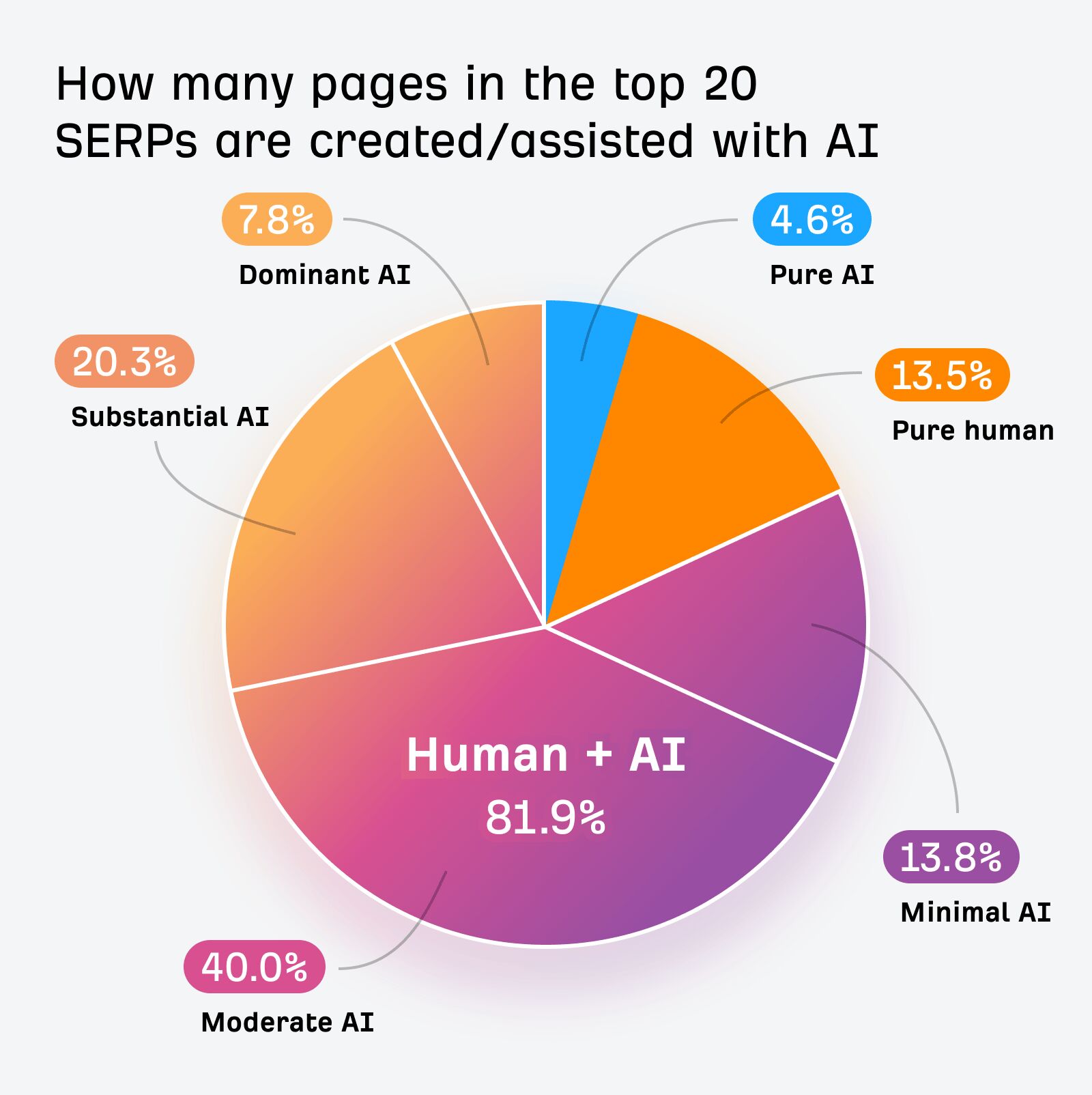
This means AI Overviews are drawing from a content ecosystem that’s increasingly AI-generated. We’re potentially witnessing the emergence of an AI content ecosystem where machines talk to machines.
Start using AI Content Detector
Ahrefs’ AI Content Detector is part of Site Explorer. Just enter any URL, go to Page inspect, then click on the AI Detector tab.
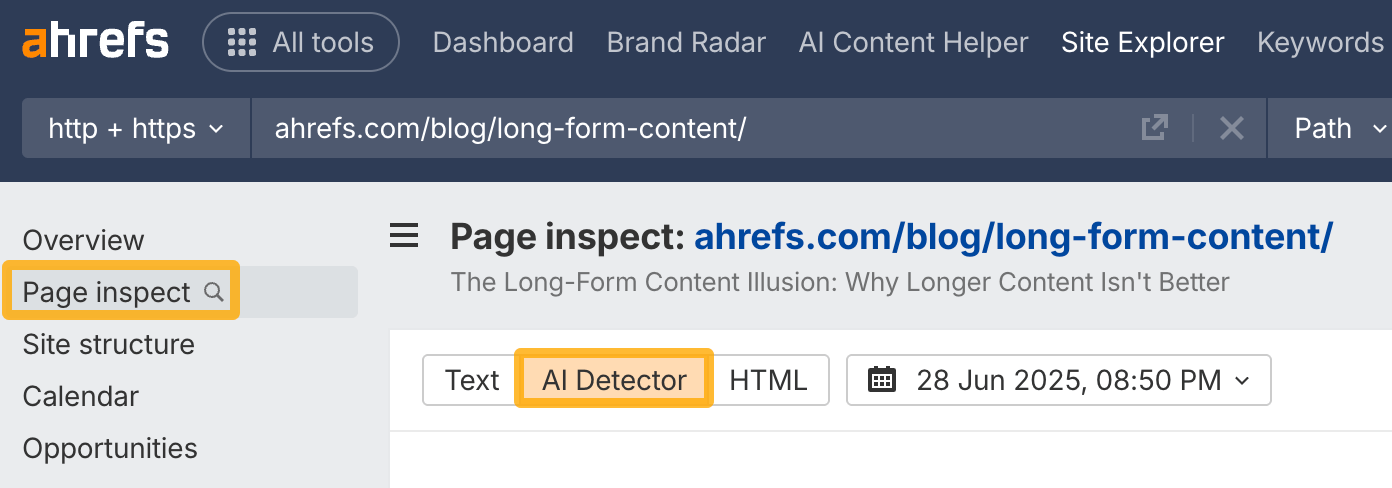
It’ll tell you what percentage of the content is AI-generated and which LLM was used.
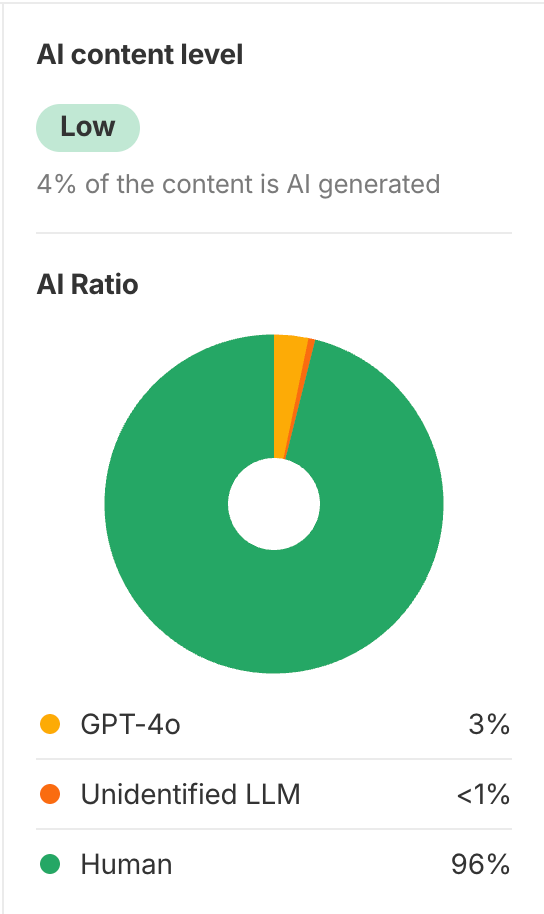
Similar Posts

NVIDIA Invests $1B in Nokia to Build AI-Powered 6G Networks
NVIDIA is expanding its ambitions beyond the realm of artificial intelligence and high-performance computing into the…
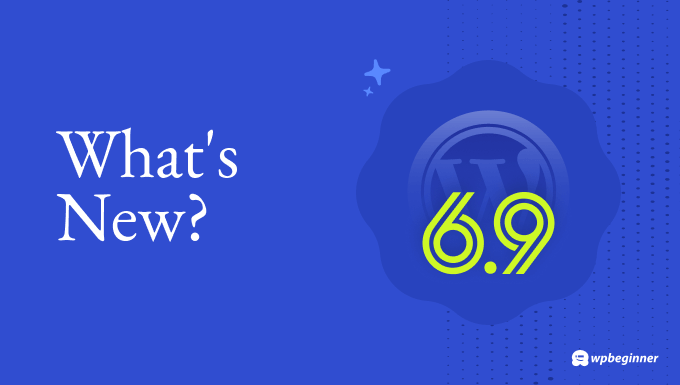
What’s New in WordPress 6.9? (Features & Screenshots)
WordPress 6.9 is finally here 🥳, and it marks the final major release of 2025. After…

Best Practices to Secure Your Dedicated Server 2025
Cyber threats are smarter and stronger in 2025. Keeping server security tight is crucial for your…
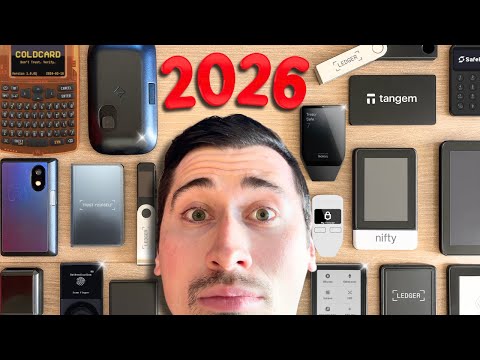
If I Had to Choose a Cold Wallet in 2026, I’d Pick One of These
Get 30% off your Tangem Wallet: https://cyberscrilla.short.gy/tangem26 Get $70 in free BTC with your Ledger Flex:…

Formula E Uses AI, Regenerative Braking to Power Monaco Lap
In a striking demonstration of energy efficiency and AI capabilities, Formula E has successfully charged its…
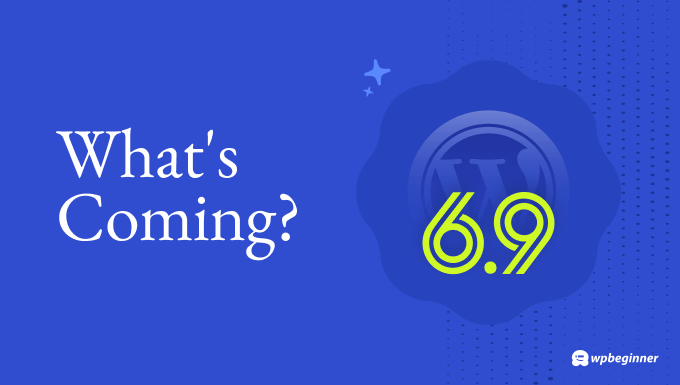
What’s Coming in WordPress 6.9? (Features and Screenshots)
The first beta for WordPress 6.9 is now available for testing. When it’s officially released later…